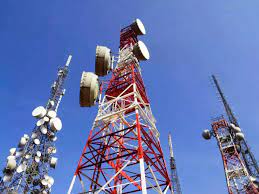The Administrative Council has approved the transfer of land free of charge to BSNL, a Government of India enterprise, to provide 4G mobile services to all uncovered villages in Jammu and Kashmir. The decision is in line with the Union Government’s policy of providing free land for the saturation of 4G services. The scheme will cover 303 villages in J&K and ensure seamless connectivity under the Universal Service Obligation Fund. The provision of 4G mobile coverage in villages can have a significant impact on the lives of people living in these areas. It can improve access to health services, education, financial services, and other essential services, enabling them to lead a better quality of life. It can also facilitate the growth of local businesses, attract investment, and create job opportunities in these areas, thereby reducing migration to urban areas. Furthermore, 4G mobile coverage can also play a crucial role in disaster management and emergency response. In times of crisis, it can help authorities quickly disseminate information, coordinate rescue efforts, and enable affected communities to access vital services. Concerns have been raised over the inadequacy of proposed 4G base transceiver stations (BTs) for the Jammu division, which covers more than 26,000 sq km of hilly and mountainous districts like Rajouri, Poonch, Doda, Ramban, Kishtwar, Udhampur, Reasi, and Kathua. BSNL plans to provide 3,104 e-node BTs for 4G coverage in the Kashmir valley, covering 15,000 sq km. This will involve upgrading 500 existing sites and adding 2,600 new ones. On the other hand, the proposal for the Jammu region is for only 600 4G BTs, which, given the region’s size, population, and proximity to enemy nations, is a poorly planned approach by BSNL. All aspects, must be taken into account. Overall, providing 4G mobile coverage in villages is essential for promoting inclusive and sustainable development, bridging the digital divide, and ensuring that no one is left behind in the journey towards a digital future.


